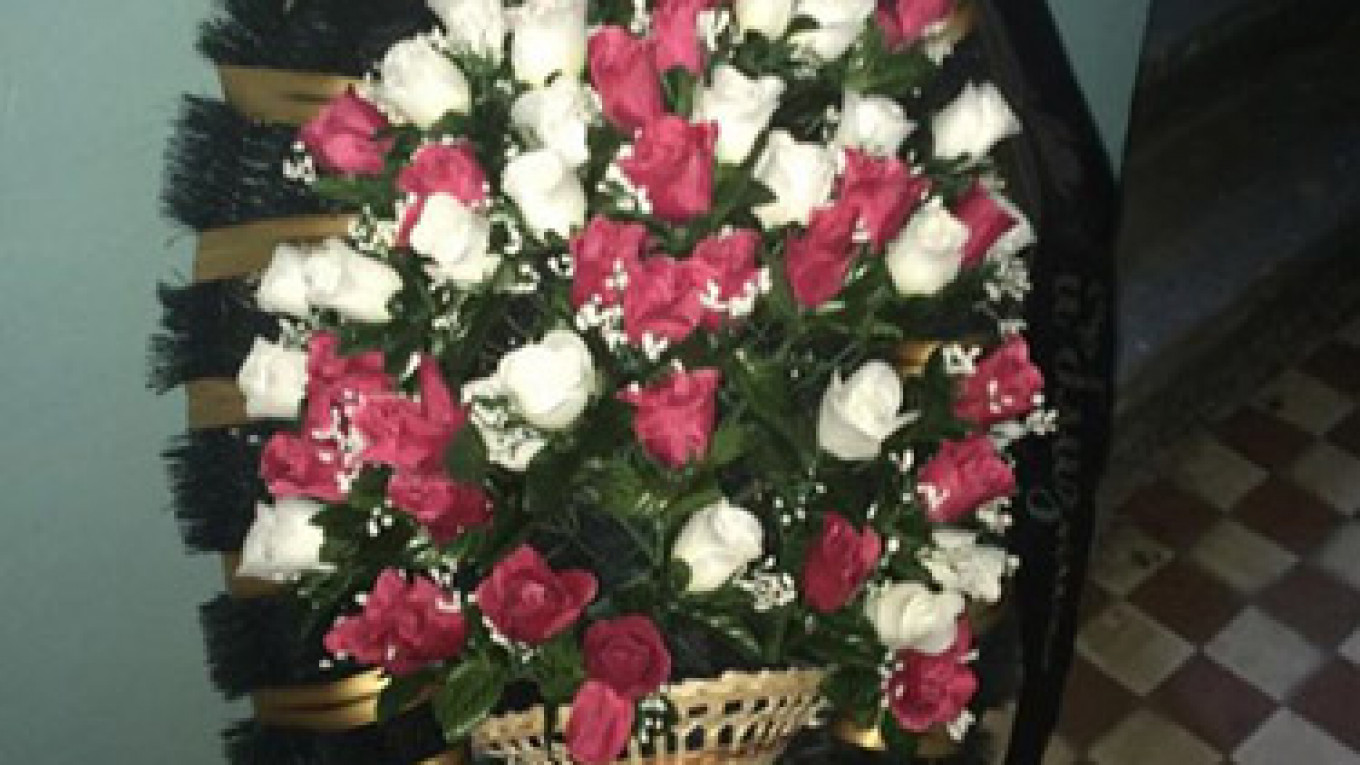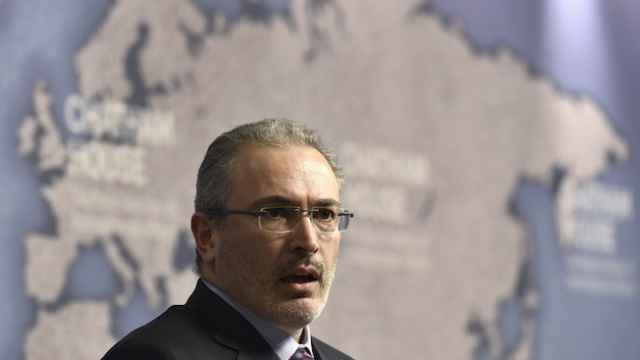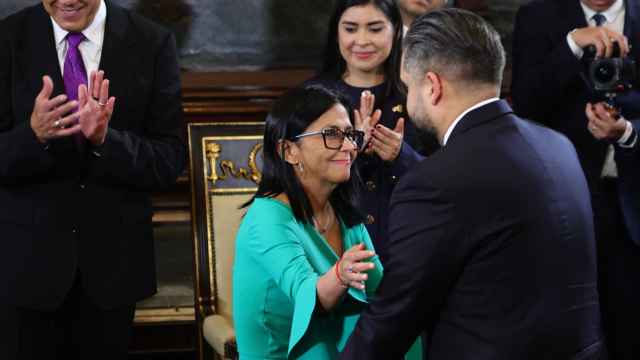As President Vladimir Putin's spokesman shrugged off a report of a hit list of Russian politicians and journalists Wednesday, the press secretary of the self-exiled opposition figure Mikhail Khodorkovsky found a funeral wreath outside her door.
A day earlier, opposition-focused newspaper Novaya Gazeta reported that Putin was informed last week of a hit list containing the names of recently murdered politician Boris Nemtsov, as well as Khodorkovsky and even socialite-turned-activist Ksenia Sobchak.
The newspaper said that a team of killers was responsible for each name on the list and implied that at least some of the killers were Chechen. A man who worked in Chechnya's Interior Ministry troops has been charged with killing Nemtsov.
Putin's spokesman Dmitry Peskov told Ekho Moskvy radio on Wednesday that the idea of such a hit list would be absurd. But he said he could not deny that Putin could have been informed of such a list because he doesn't know "all the details of every report by law enforcement and security services."
Khodorkovsky's press secretary Kulle Pispanen found the wreath outside her Moscow apartment on Wednesday and uploaded a photo of it to Facebook. The wreath apparently has 60 flowers. In Russian tradition, an even number of flowers is only ever given at funerals.
"There was no note," Pispanen told The Moscow Times. "I don't know where it came from, but it is a funeral wreath."
Khodorkovsky, once Russia's richest man, served 10 years in jail on fraud charges that his supporters said were trumped up in revenge for the former oil tycoon's interference in politics. After being freed in late 2013, he formed the Open Russia civil society platform from Switzerland, where he has lived since his release.
A Message from The Moscow Times:
Dear readers,
We are facing unprecedented challenges. Russia's Prosecutor General's Office has designated The Moscow Times as an "undesirable" organization, criminalizing our work and putting our staff at risk of prosecution. This follows our earlier unjust labeling as a "foreign agent."
These actions are direct attempts to silence independent journalism in Russia. The authorities claim our work "discredits the decisions of the Russian leadership." We see things differently: we strive to provide accurate, unbiased reporting on Russia.
We, the journalists of The Moscow Times, refuse to be silenced. But to continue our work, we need your help.
Your support, no matter how small, makes a world of difference. If you can, please support us monthly starting from just $2. It's quick to set up, and every contribution makes a significant impact.
By supporting The Moscow Times, you're defending open, independent journalism in the face of repression. Thank you for standing with us.
Remind me later.






